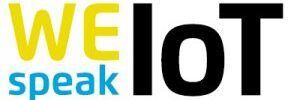Those who want to generate sustainable value from data need a strategic approach. In the first part of this article, three simple data-driven business models were presented. The second part presents networked models.
Those who want to generate sustainable value from data need a strategic approach. In the first part of this article, three simple data-driven business models were presented. The second part presents networked models.
With the death of Professor Stephen Hawking (* 1942 Oxford, UK), humanity lost one of its most brilliant minds on March 14, 1818. His wheelchair is a shining example of how connected technology can facilitate and enrich life.
Data, they say, is the new gold. But how do you turn one into the other? Anyone who wants to generate sustainable value from data needs a strategic approach. We present 5 data-driven business models in this two-part article. Data-driven […]
Keeping our cities clean with smart waste bins: Intelligent waste management with smart containers could avoid overfilled waste bins and saving municipalities a lot of money. Harald Naumann, engineer in information electronics, explains how.
IoT in logistics is one of the most promising fields for experimentation with new uses of the IoT. There is huge scope in logistics for eliminating inefficiencies such as wasted journeys, unused storage or haulage space, and the loss, theft, spoiling or impairment of goods in transit and in storage.
Driven by innovative technologies in the field of sensors, computing speed and battery life, it is conceivable that our clothing will increasingly change over the next few years. The so-called “Smart clothes” are clothes characterized by traditional protective and representative functions in combination with digital and technical features.
Smart services such as car sharing, or package tracking form a central foundation for future digital business models. Companies that know how to innovatively exploit the potential of data open up completely new business opportunities.
Smart products such as fitness trainers, connected cars or intelligent houses are changing the expectations of customers – and are ploughing over entire industries and branches of industry. In the light of this development, companies should therefore rethink their product […]
Humans have been farming successfully for thousands of years, for most of that time using only the most primitive of technologies. Only in the very recent past have computers begun to have an impact on the way that farmers grow crops and raise livestock. So it might seem strange to suggest that a traditional craft honed over such a long time could be ripe for reinvention via the Internet of Things.
Engineers from Bosch and Daimler are currently experimenting with how a car finds its way through a public car park. For car park owners, this technology offers new potential added value for their business.
